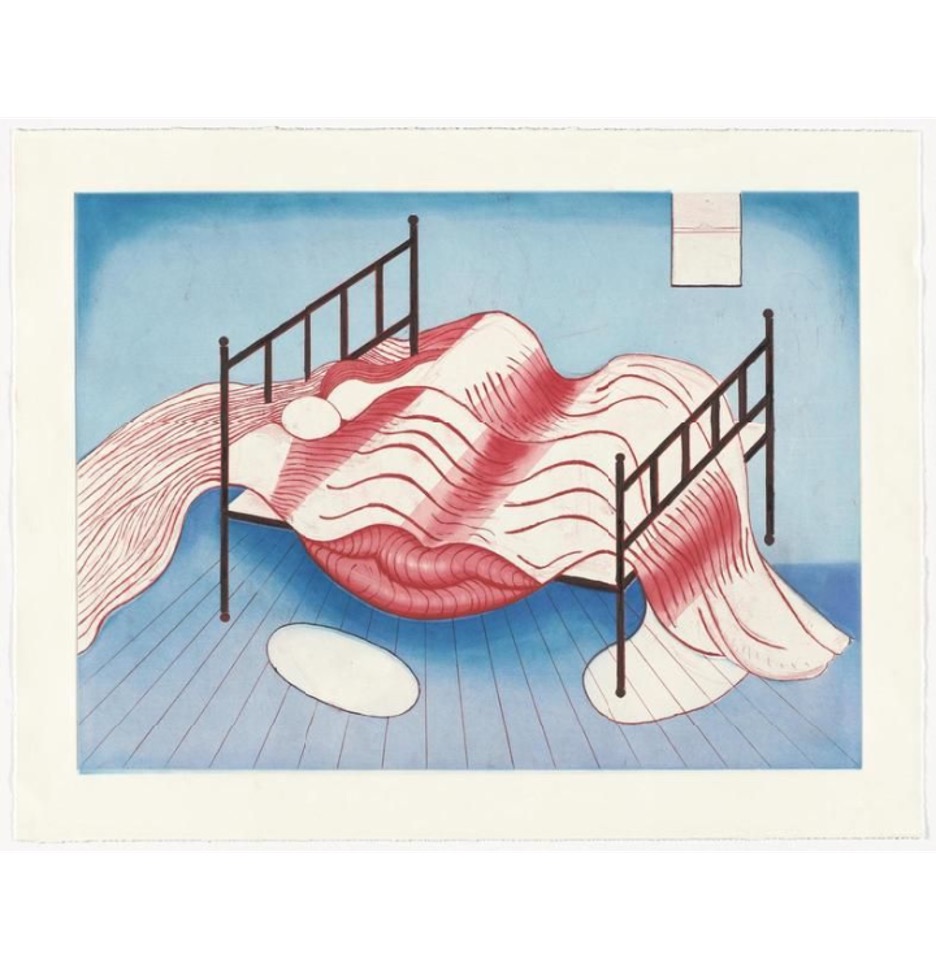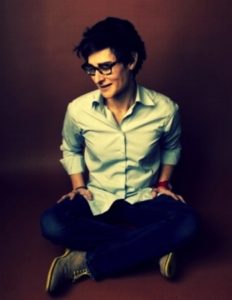Julia Guez’s “In a New Form”
In a New Form
She’s not taking her temperature first thing in the morning, not the way she was
before.
The slow passing of a cortège in March sleet, the poverty.
The thermometer is on my windowsill now.
Nothing seems real or right.
She doesn’t even ask if it would be safe to borrow.
Now it is April and another summer.
What is written in small red letters,
above the display:
Days may be where we live, but mornings are eternity.
They wake us, and every day waking is absurdity;
All the things you just did yesterday to do over again, eternally.
It used to sit on the convex
frame of a mirror hanging
on the wall, on her side of this
bed we haven’t shared in weeks.
There is saying the same thing again in a different form,
There is saying something new in the same form,
There is saying the same thing again in the same form,
There is not much saying something new in a new form.
Isolation, etcetera—
quarantine
within
quarantine—
timor mortis conturbat me.
Coughing in fog
beside a wrinkled bed, I clean the thing repeatedly with a lemon-scented wipe.
What will survive of us?
Larkin thought the answer might be ‘love,’
But couldn’t prove it.
Not sure how the battery isn’t low
by now. (I am so low
by now). We have been
brought to our knees by this
terror very close
to pure terror
prolonging itself so
that there is no necessary season for things
and birth and death happen on adjacent wards,
that both are labour, halting and starting;
that women are always the middlemen
finding the coins
a sensor at the very end, spelling the word,
Spring. Spring.
If you do not weep now, you may never weep.
You know all this:
This is the world and the entropy of things.
This is how things mix together.
The huge relief of the sea as it reaches the beach.
And sprays, and sprays,
This is the city’s archipelago, its dead—
Now nothing will ever be the same again.
And everything will be as it always was.
Every indentation signals a line or line from “You, Very Young in New York,” “Repeat Until Time: The Heraclitus Poem,” or “The Sandpit After Rain.”
Hannah Sullivan, Three Poems
Julia Guez on “In a New Form”
This poem came to be when I was very sick with something called SARS-CoV-2. The city was so quiet, except for the sirens. You could hear birdsong. That was in March, April and May (2020).
In my Moleskine, where various meetings and tasks and locations would fill a day to brimming once upon a time, I began to track my symptoms. Late one night, forty-eight hours into things, I share some of these symptoms with the physician on call; she sends me to the Emergency Room.
Once I am stable, the nurse advises me to do all I can to fight this out at home. Unless I cannot finish a sentence, I should not come back. I did not know how any of this would end; from then on, I simply focused on finishing my sentences.
At night, I would listen to guided meditations. (I can recite every word of this one from Mark Williams). During the day, I would listen to Brahms, Bach and Bill Evans – Live in Buenos Aires, 1979. In the next ninety days, I made my way, slowly, through Don Quixote. And I made my way back to a slender book of poems by the brilliant, Hannah Sullivan.

In my Moleskine, middle of the night, I would take down my favorite lines. There were so many! A cento began to take shape. This is me in my bed, working that cento out. (It was made by the one and only Louise Bourgeois in 1997).

Something happened mid-way through the making of this poem (which isn’t quite visible in Le Lit, Gros Édredon, Bleu). Alone in my room with Hannah Sullivan, I remember the sleeplessness, the fever, a pain between my shoulder blades in the shape of a bullseye on my back. I remember the tightness in my chest, tingling in my arms, thirst, cold and fear. I remember almost every breath. I remember the relief, the gratitude and the sense of achievement my breath would bring. That book in my hands, I remember sitting up, thinking this would not be a cento at all, if I could hold up my end of things: It would be a back and forth.
“Together” “we” might “say” “something new in a new form.” At the time, finding a new form seemed to be an absolute necessity. “Saying something new” seemed necessary, too.
Every indentation in my poem signals a line or lines from “You, Very Young in New York,” “Repeat Until Time: The Heraclitus Poem,” or “The Sandpit After Rain” (which are the three poems in Three Poems). These lines were vital to me when I first encountered them almost two years ago. They are vital to me now.
Here is what Marilyn Hacker has to say about going to poetry in a time of crisis:
Sometimes a column by an astute political journalist seems more necessary than poetry and effaces the desire for it. Still, it is not the journalism of the past that, at the bleakest or most hopeful moments, calls for rereading.
The poems in my new book, The Certain Body, emerge from all that has called for reading and rereading the last two years (which represent the bleakest moments for me, personally, the most poignant and some of the most hopeful).
My notes allude to gorgeousness from Roland Barthes, Cristina Rivera Garza, Claudia Rankine, Maggie Nelson, Vija Celmins, Jammie Holmes and many (brilliant) others. I engage no one more closely than Hannah Sullivan, though.
I am grateful to Charles Kell and the Ocean State Review for running this one in the magazine. I am grateful to Hannah Sullivan, Faber and FSG for those three poems. I am grateful to the physician, the therapist and the priest who helped me find my way to those poems (and others, too). The Certain Body is dedicated to them and to everyone else helping us collectively find our way to the other side of this.
Read Julia Guez’s other poem, “Ode,” featured in the tenth anniversary of the Ocean State Review.
Julia Guez is a writer and translator based in Brooklyn. Her essays, interviews, poems and translations have appeared in Guernica, POETRY, The Guardian, PEN Poetry Series and BOMB. Four Way Books released her first full-length collection, In An Invisible Glass Case Which Is Also A Frame, in 2019. Her next book, The Certain Body, will appear in 2022.

